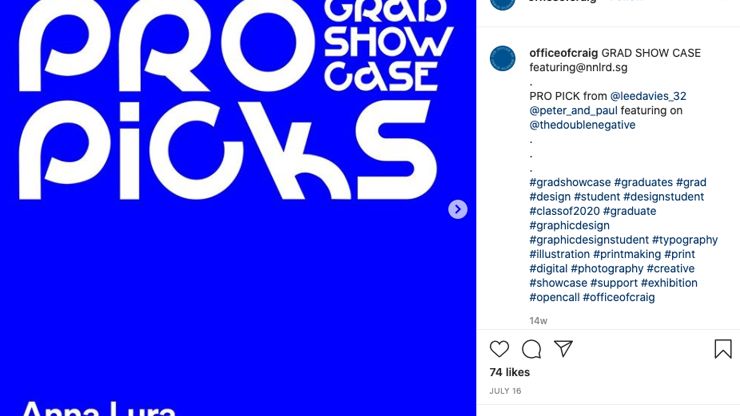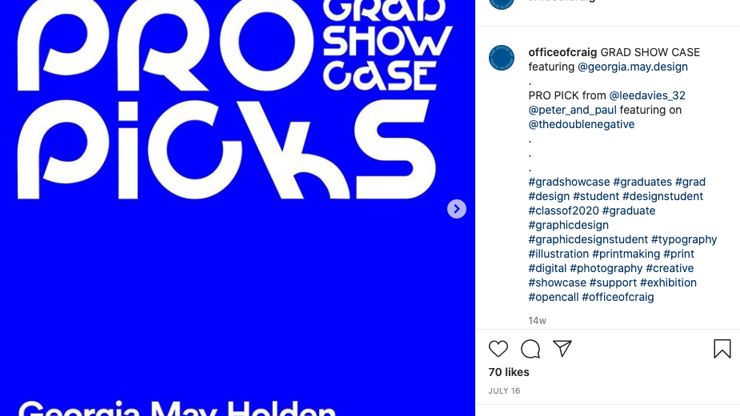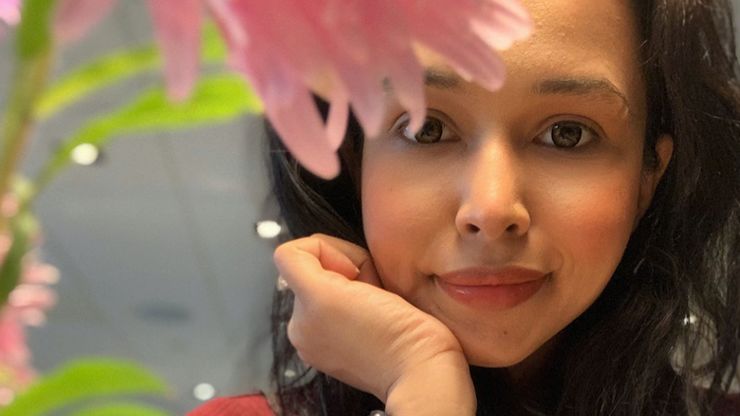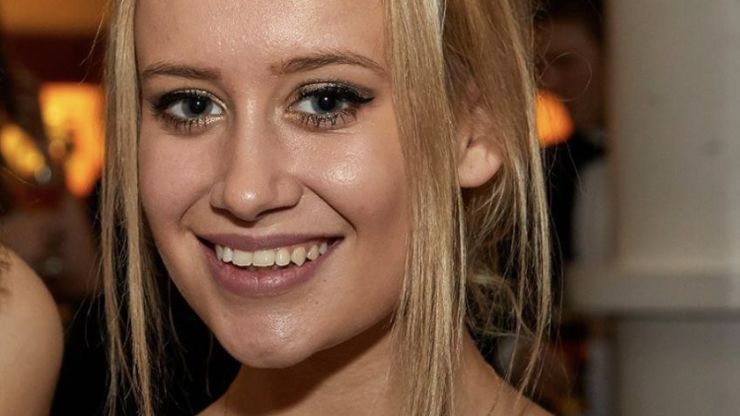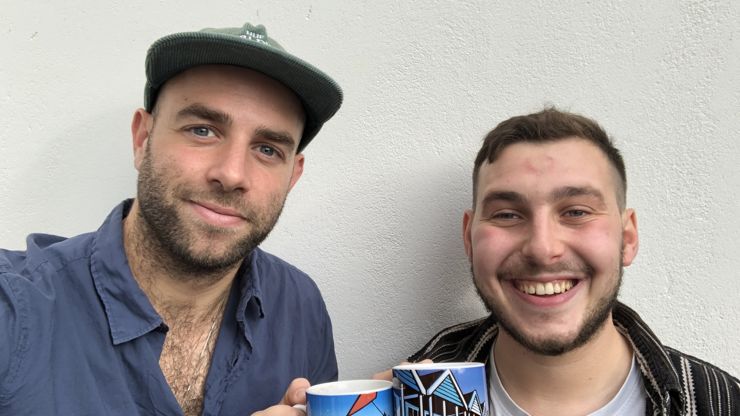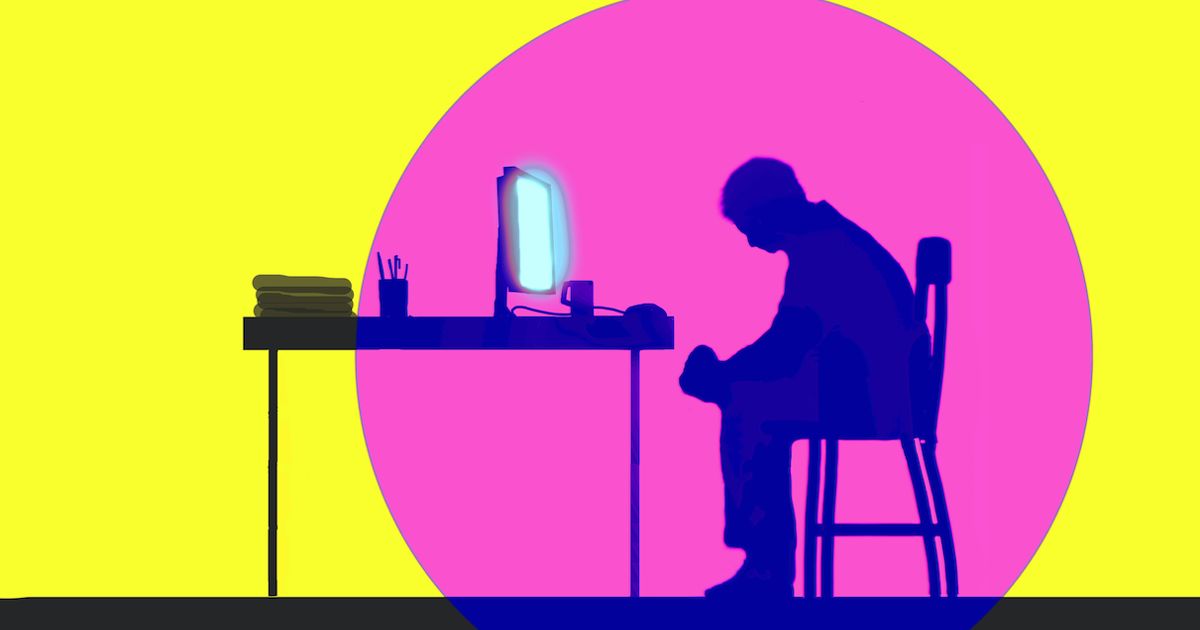Tomorrow's creatives: How has the pandemic affected the industry's next generation?
This new series sees our Culture Editor, Amy Kean, talk to younger members of the industry about a range of topics. In her inaugural piece she asks junior creatives how the events of 2020 have affected them, if working from home has been a boon, and whether the industry is doing enough to support them.
I asked some junior creatives in ad land how they were coping during Covid. What they told me will blow your mind…
…because most of them are really happy. The ones who have jobs, anyway.
At shots, as part of our new focus on industry culture, we’re going to be celebrating tomorrow’s creatives: giving them a louder mic to shout about how the future should look. So, last week, I yelled the question into cyberspace. “Newbies! How ARE you?”
Either companies in our industry are getting their shit together or everyone’s so terrified of pissing off the PR teams of massive corporations that they’ve written what’s akin to a TripAdvisor review in the hope of receiving brownie points from seniors.
I was expecting - being an investigative Voice of the People™️ - to deliver a shocking expose. Dark tales of 22-year-olds holed up in tiny rooms with no windows, being monitored on Zoom by power-hungry managers for 15 hours a day, without even a break to eat some dry bread and catch a few gulps of rain water from the street outside. Such is our industry’s reputation.
But, no.
Well… mostly, no.
In fact, junior agency staff are smashing it. They’re enjoying more support than expected, greater autonomy, and nice little touches like personalised packages bosses have been sending their way during these weird WFH months.
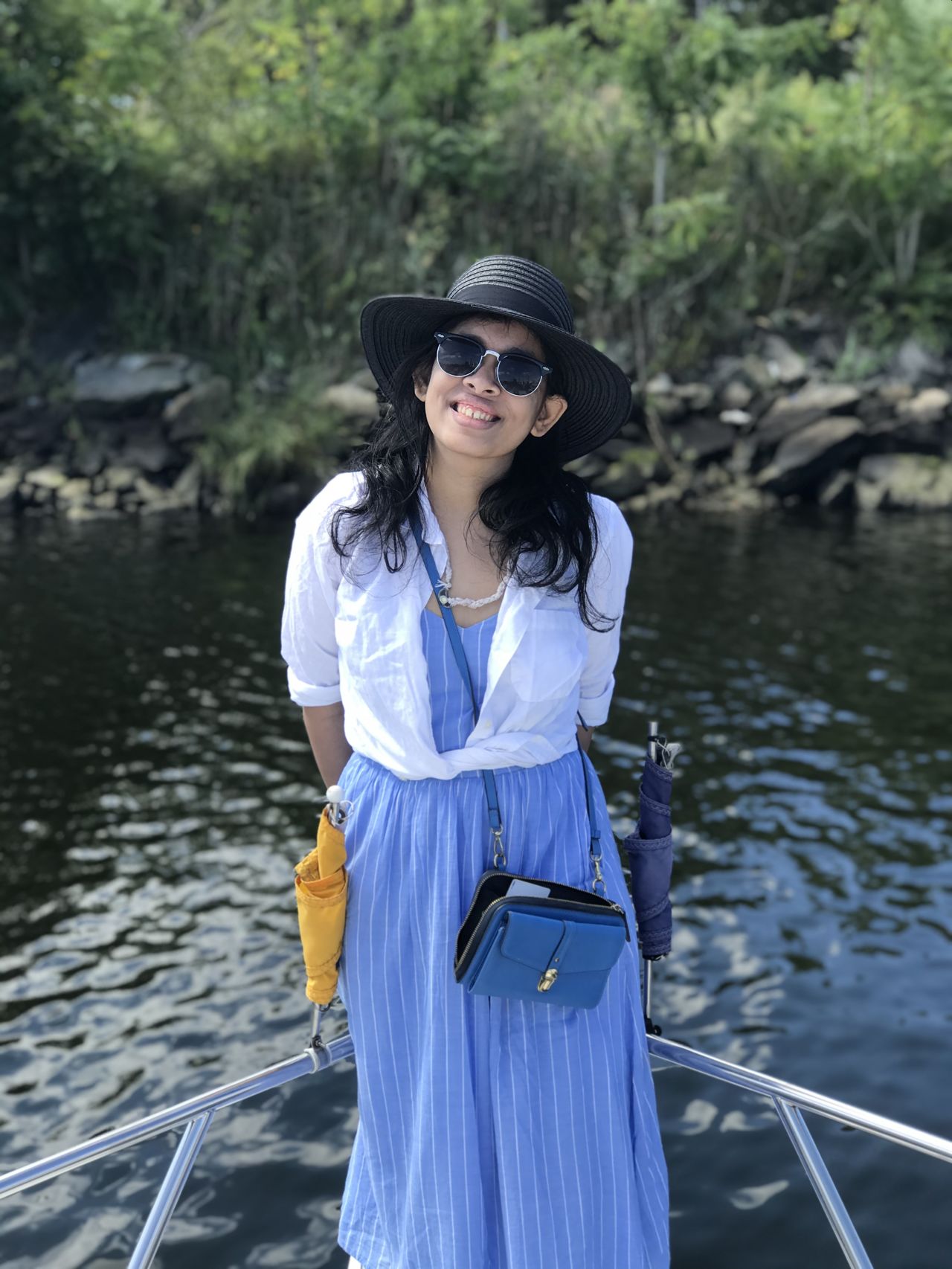
Above: Yashashree Samant misses the physical office space, sometimes finding it tough to bring fresh energy in a WFH environment.
For example, Ellie and Elisa, a creative pair, found their mojo almost immediately at Creature London. “Somehow, incredibly, we found a placement (now a permanent job!) at an amazing agency filled with wonderful people,” they said. “Before we joined we went to Zoom work drinks, and the company sent everyone a Pimm’s kit.”
Maintaining strong mental health has been the most difficult aspect of the coronavirus restrictions, but the positive culture of the agency I work for has provided ample support.
That Pimm’s is the most pointless of all alcoholic drinks is a hill I will die on, but new starters have been overjoyed with the effort their leaders have made in a remote world. Says Palak Kapadia, of Wieden+Kennedy Delhi: “My agency is fully-remote right now, but they did an incredible job of onboarding me. My CD regularly checks in to see how I'm doing and if things are going well. Honestly, I am incredibly lucky to work with such wonderful people.” The more glowing reports I received, the more sceptical I became, but it seems whilst being locked down is unusual, young staffers are enjoying the extra time to themselves. Wissal el Haddaoui, from Publicis/Poke London, said: “The two good things that I will remember from 2020 is that I found an amazing job, and slept great!”
A few of those I interviewed apologised because they didn’t have any juicy, negative gossip. My messiah complex suffered an existential crisis: where’s the revolution for me to start? Either companies in our industry are getting their shit together and supporting the younger generation, or everyone’s so terrified of saying something wrong and pissing off the PR teams of massive corporations that they’ve written what’s akin to a TripAdvisor review in the hope of receiving brownie points from seniors. I’ve been around long enough to know the latter sometimes happens but maybe - despite everything Mother Nature throws our way - businesses are getting better at caring for their own.
In the same way online university students don’t know what they’re not learning, our junior creatives may not yet appreciate what they’re not experiencing.
For many trying to find their feet, they’ve seen the whole industry step up. Rebecca Burrows, an emerging graphic designer, said: “I’ve been impressed by the generosity of the industry to help graduates out virtually. For example, @officeofcraig - Craig Oldham’s ‘Grad Show Case’ on Instagram, and companies like Superunion have offered portfolio reviews. Generally, creatives have been so generous with their time.” And with most offices not required to go back until next February at the earliest, a lot of the ad land young I spoke to were optimistic about their professional future. Nadine Trimmer, from the7stars, is bloody loving it: “The industry has hugely exceeded my expectations. Maintaining strong mental health has been the most difficult aspect of the coronavirus restrictions, but the positive culture of the agency I work for has provided ample support. Training has been readily available despite the technological challenges of working from home, and I’ve been able to get involved with a range of activities that have only made me more determined to succeed in my work.”
Above: @officeofcraig offers online portfolio reviews via Instagram.
But, before this starts to feel too much like some weird industry advertorial, remember, we’re six months in, and in the same way online university students don’t know what they’re not learning, our junior creatives may not yet appreciate what they’re not experiencing. Talking on Zoom is nothing like presenting to a boardroom full of slapped-arse-faced clients, and then winning them round with your brilliant thinking. Ideating on a Mural or Miro board gives you nowhere near the levels of eureka that an in-person session would.
Talking on Zoom is nothing like presenting to a boardroom full of slapped-arse-faced clients, and then winning them round with your brilliant thinking.
Whilst they feel supported, trained and seen, there’s one huge thing missing: The vibe. Yep. I said vibe. Yashashree Samant, a young copywriter in New York, said: “I miss nervously presenting work and gauging the response, and everything that comes with an agency life. My seniors at work have been extremely supportive, but bringing fresh energy to work each day does become difficult when the office is the next room.”
But how the hell do we recreate ad land’s vibe, digitally (the good stuff, not the… well… you know… the dodgy side)? Carys Rush from Mediacom is one worker missing her serendipitous social connections. “It’s the ally-ship I didn’t have time to build before Covid that I am lacking. What I miss is being able to freely ask for advice or reassurance from those with more experience in both the world and my role. Allies are made on the way to Nando’s on a Friday. Not on a video call from my bedroom.”
Allies are made on the way to Nando’s on a Friday. Not on a video call from my bedroom.
I feel like Nando’s is missing a trick, here. Where’s the WFH Nando’s-sponsored webinar on Fridays? The mini-Zoom festivals with breakout rooms filled with bright lights and colourful music? Nando’s? Seriously. Hit me up. Let’s make this happen. Because as execs become managers, and the work gets harder (that critical transition from peripheral to essential) these social connections are often the comfort blanket that make long hours and ungrateful clients tolerable.
Above: Poroma Pant, left, and Bethany Abbott feel let down by lockdown agency life.
Bethany Abbott, from OMD, said: “All the perks to the industry have simply disappeared. I used to not mind working long hours on minimal wages when I could spend the night lapping up a free bar with colleagues who became friends. But now I find myself working late into the evening without even speaking to another soul. If we want to keep young people motivated and integrated, something has to be done to improve how they can socialise freely with one another.”
I’m not sure if it’s the industry that has let me down, or the people managing it.
For those who are still growing and getting to know the industry, there needs to be some extra payoffs. More than just the ‘glory’ of working in advertising. Poroma Pant is currently nailing the wonderful everyday as a copywriter in-house at IKEA but, prior to that, her lockdown agency life left a lot to be desired. “I’m not sure if it’s the industry that has let me down, or the people managing it”, she said. “While I do see a handful of folks working tirelessly to drive positive change, I firmly believe there is a lot of work to be done to create a better future for ad newbies. I’ve seen more folks go through burnouts (myself included) during the pandemic. I worked longer hours during the lockdown because everything was an 'emergency'. There wasn’t an option of saying no to a client, and I think that created a very toxic work environment for everybody. Senior management needs to do more than just send a virtual yoga hangout link as a way of compensating the burnout culture.”
Senior management needs to do more than just send a virtual yoga hangout link as a way of compensating the burnout culture.
But whilst a lot of new starters were feeling surprisingly supported in work, we’re seeing another form of burnout culture amongst those looking for opportunities such as placements and internships. For junior creatives trying to make their mark, it’s a shit show. Two-week placements are causing stress, anxiety, and extreme financial uncertainty. Mickey Jones (the excellent @pickme_mickey on Twitter) said: “Covid-19 has made placement a lot shorter in length: Two weeks, in fact. It might sound ungrateful but, instead of offering short placements, wait until you have the opportunity to give something more substantial. It takes two weeks alone trying to adapt to virtual working, and getting to understand the admin side. Instead of fooling your hires about how long you can keep them on for, just be honest and give them plenty of notice.”

Above: Mickey Jones says that placements have been reduced in length making them much harder to navigate in a lockdown world.
Gigi Rice is one half of a new creative team in the same boat: “I will have been with four or five agencies by Christmas, so changing jobs every month and figuring out the next month has aged me 10 years in the last six months. I feel that my partner Elle and I are on our own, fighting to keep our heads above water. I'm checking my LinkedIn 67 times a day, and trying to build contacts from there.” Deafening silences in response to job applications, broken promises and erratic feedback are further challenges job-hunting creatives face. In this 'be kind' era, established agencies could be working much harder to give the talent of tomorrow more hope, and more exposure.
While many people are eager to help, the junior roles seem to have all disappeared.
Mahalia Peake, a junior creative on the lookout for her big break, thinks the industry means well but needs to take that leap from lip service to putting their money where their mouth is. “It seems everybody is very willing to help those who ask for it, whether that’s having a virtual coffee or mentoring someone,” she says. “However, while many people are eager to help, the junior roles seem to have all disappeared. As an aspiring copywriter, being able to stay busy and continue to flex my creative muscles has been essential in staying motivated while on the job hunt. I encourage agencies to find whatever ways they can to help young creatives to keep busy, even when everything has come to a standstill.”
Above: As junior creatives, Gigi Rice and Aaron Furman (far right) have found the hunt for work more difficult since the coronavirus pandemic hit.
As current creative jobseeker Aaron Furman is finding the search just as tireless: “It has never felt more frustrating to find work. People think you’re great, the work's great, but it always ends with the “unprecedented times” speech. I understand money is tight, but the industry, as always, needs fresh talent to survive. WE ARE CHEAP! You could hire a whole junior department for the price of that ECD you let go.” Creative duo Andy and Katie echo this, with no-holds-barred: “This is a shit time to be looking for work. So, if a junior team writes to you about placements, PLEASE just reply so everyone knows where they stand. We know you’re busy but at least you’ve got an income. Just a single line – “Nothing yet, try us in a month or two.” – is infinitely better than deafening silence.” One thing our industry’s normally really bad at is silence. So why now?
People think you’re great, the work's great, but it always ends with the “unprecedented times” speech.
Why does anybody want to work in advertising, really? It’s never really changed: the buzz of inventing new stories, the camaraderie, to show off! Yes, those lucky enough to have worked at agencies big and small are doing OK, but WFH isn’t just a process, or a location. It’s a feeling, too. Good connections aren’t just delivered through wi-fi, they take a different kind of work.
As we approach 2021 like reverse-evolutionarily, knackered cavepeople, when no one knows what the next six months may hold, our biggest task is to enhance the social side of remote creating. The ranty lunches, staunch allies, creative inspiration, fruitful discoveries, burgeoning relationships, the graduate shows!
Screw online pub quizzes, they died months ago. We need to relocate the vibe. Any ideas?
)




 + membership
+ membership

